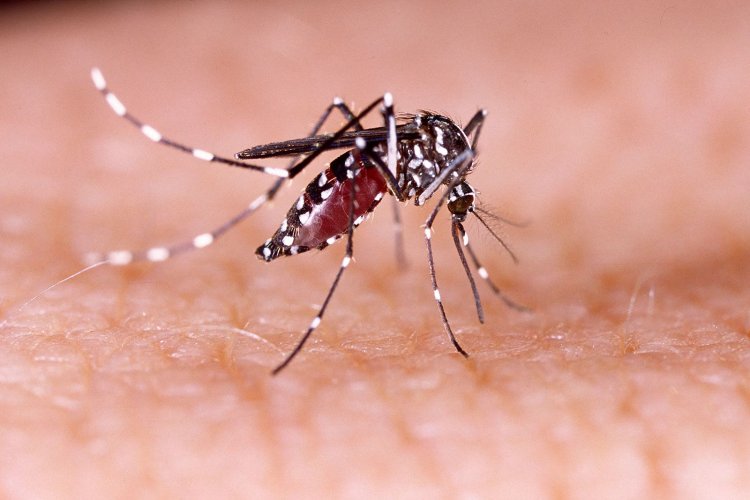What You Should Know About Dengue Fever in the United States (And How to Treat It)
Mosquito bites are often dismissed as the bothersome background music of summer, just another itch on your ankle or buzz in your ear. However, dengue fever—something much more dangerous—has recently arrived in America thanks to those microscopic, high-pitched parasites. Dengue, which was formerly mostly found in tropical regions, is suddenly unexpectedly showing up all throughout the United States, and people are taking notice.

Let us examine the situation: What is dengue, why is it occurring here, how does it spread, and what can you do to be safe?
Let us start with the basics: what is dengue?
The virus that causes dengue, sometimes known as "breakbone fever" because of its infamously severe joint pain, is contracted through the bite of an infected mosquito, notably the Aedes species, which are also responsible for Zika and chikungunya.
The trick is that you can contract dengue more than once since each strain is unique and immunity to one does not shield you from the others.
The majority of infected individuals will not experience any symptoms. However, symptoms come in like a freight train for roughly one in four people.
Typical Signs of Dengue
If you have a fever of 101°F or higher after recently visiting a dengue-risk location, be aware of the following:
Behind-the-eye pain (yeah, actually)
Muscle, joint, or bone aches
Vomiting, nausea, or an abrupt decrease in appetite
A little rash that is red, splotchy, and difficult to describe
Severe Dengue: When It is Not Just a Negative Insect
About one out of every twenty dengue cases will progress to severe dengue, which can result in organ problems, dangerously low blood pressure, and internal bleeding.
Visit the emergency room if you encounter:
bleeding nose or gums
severe swelling or pain in the abdomen
Constant vomiting
Lightheadedness or fainting
Extreme tiredness that feels heavier than fatigue
Particularly vulnerable groups include older adults, pregnant women, infants, and those with a history of dengue.
What Can You Do for Treatment?
Since dengue is a virus, there are no miraculous cures or medications for it. There is only supportive care available—no cure:
Take it easy like it is your job.
Consume fluids excessively
Acetaminophen is a good pain reliever, but avoid NSAIDs like aspirin or ibuprofen as they can raise the risk of bleeding.
Typically, mild instances resolve after a week. Hospitalization and intravenous fluids may be necessary in severe cases to maintain stable blood pressure.
What Is the Spread of Dengue?
Dengue cannot be contracted through sharing a drink, sneezing, or even an embrace. Only mosquitoes can spread the virus. The cycle operates as follows:
A person who already has the dengue virus in their bloodstream is bitten by a mosquito.
The mosquito contracts the infection.
The virus is then spread when that mosquito bites another person.
What happens if a tourist contracts dengue overseas and is bitten when they return home?
Where Is Dengue Occurring in the United States?
In the past, dengue has primarily remained in tropical regions such as Puerto Rico and the U.S. Virgin Islands. However, that is evolving.
Nearly 3,000 instances were reported in all U.S. states and territories in 2024 alone. Among the hot areas are:
Florida
California
New York
Massachusetts
Puerto Rico, where nearly 1,500 cases in a few months led to the declaration of a public health emergency
Dengue is exploding worldwide.
What is causing the spike, then? Experts blame increased mosquitoes transmitting the virus, urbanization, climate change, and international travel.
Is a Dengue Vaccine Available?
Yes—and no.
Dengvaxia, an FDA-approved medication, is only available to children aged 9 to 16 who have already experienced dengue and reside in high-risk locations. Most people cannot access it, and by September 2026, it will be completely phased away.
To put it briefly, do not expect a vaccination to save your life just yet.
Your best option is still to learn how to prevent dengue. That entails combating mosquitoes in full ninja mode:
Use an insect repellent that is EPA-registered while you are traveling or being outside; search for DEET, picaridin, IR3535, OLE, PMD, or 2-undecanone.
Cover up with loose-fitting clothing, long sleeves, and pants to prevent mosquitoes from getting inside.
For added protection, apply permethrin on clothing and equipment.
Install screens on windows and doors at home.
If at all possible, use air conditioning.
If you are in an area without air conditioning or with open windows, sleep behind a mosquito net.
Remove any standing water from buckets, flower pots, birdbaths, toys, tires, and other rain-collecting items.
The Bottom Line
Dengue fever has spread to America and is no longer merely a tropical exotic disease. You can keep ahead of it, though, if you take the proper safety measures and are mindful. Think like a mosquito. Be ready to travel. And what if you return from a trip feeling a little...off? Do not delay. Get examined.Because vigilance is the best immunization we have against dengue.
What's Your Reaction?




















